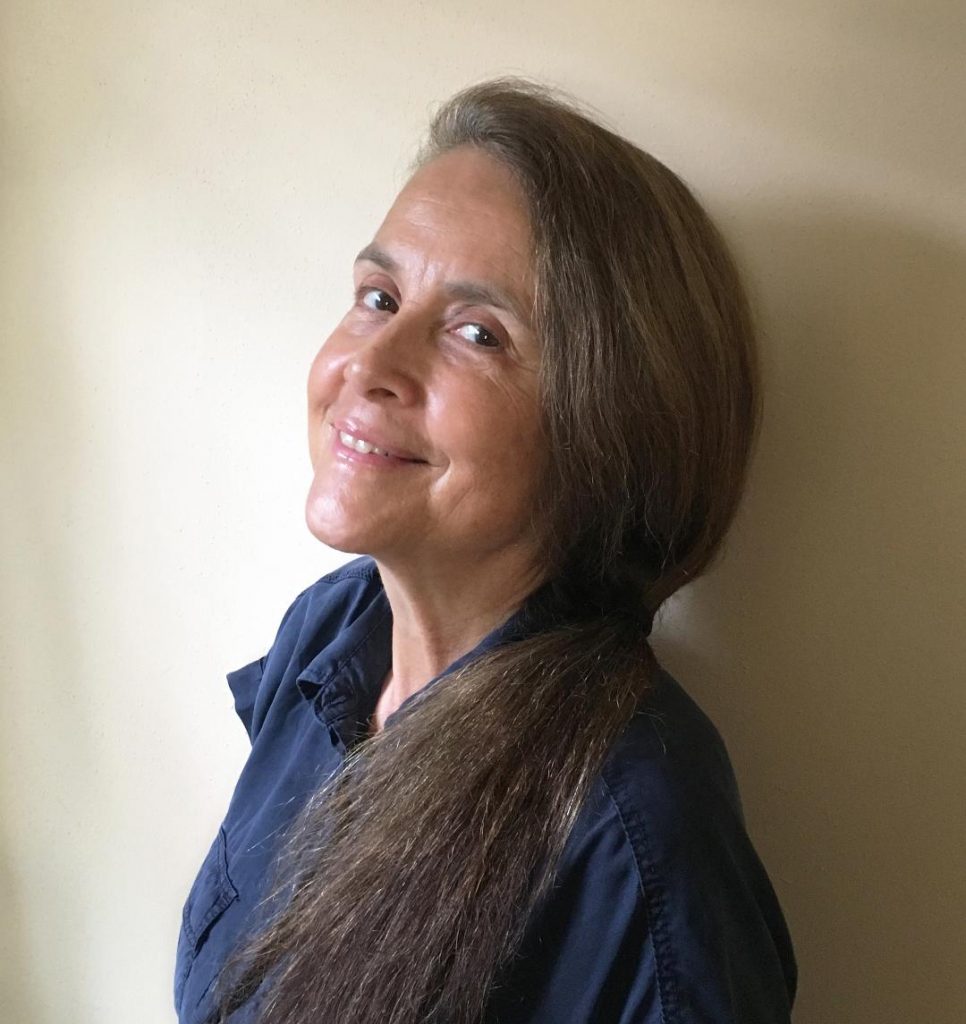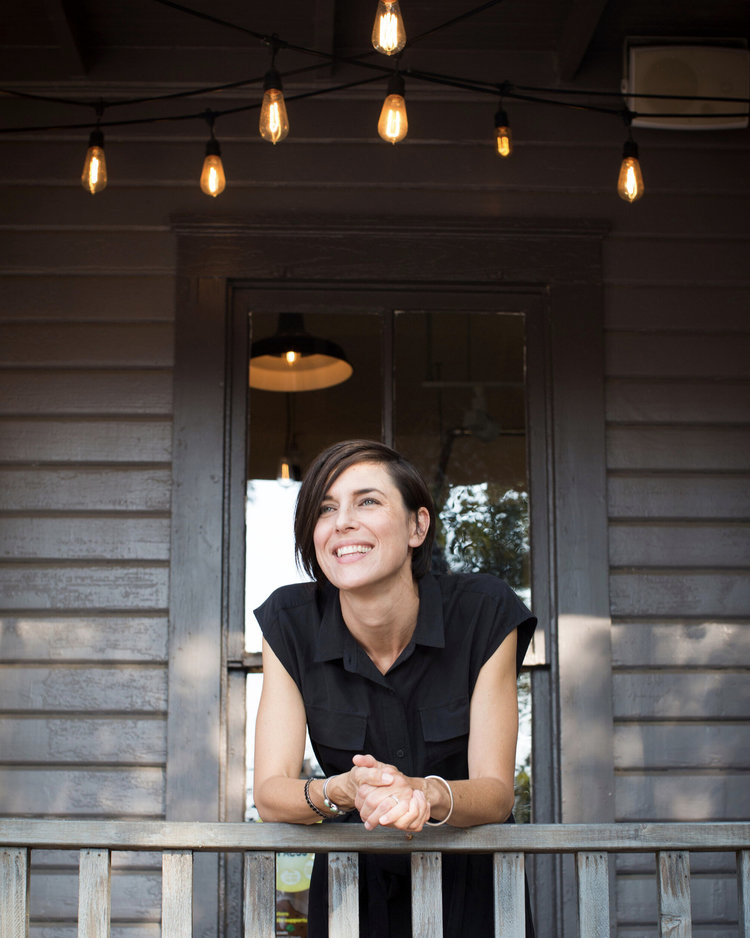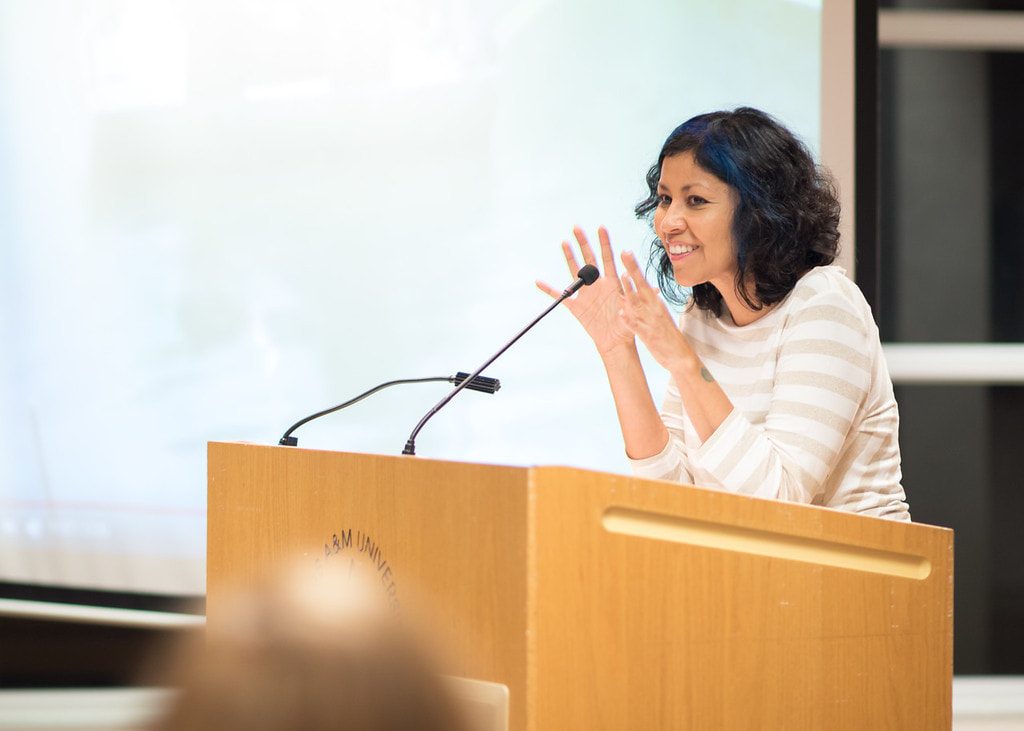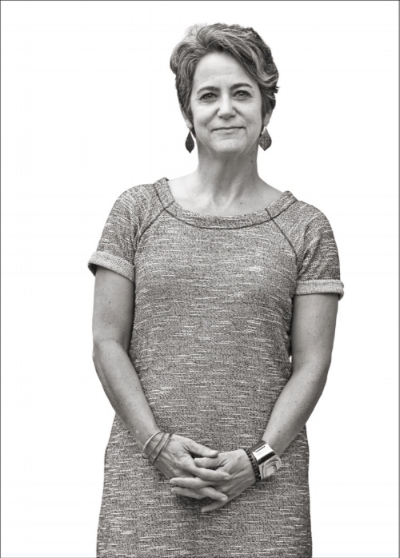Find Wisdom and Comfort in the Voices of These 6 Texas Poets
Read Naomi Shihab Nye’s new poem for the occasion, along with works hand-selected by Carrie Fountain, Emmy Perez, Octavio Quintanilla, Robin Bradford, and Jesse Bertron.
By Clayton Maxwell
In his book of interviews, Walking Down the Stairs, poet Gallway Kinnell says, “To me, poetry is somebody standing up, so to speak, and saying, with as little concealment as possible, what it is for him or her to be on earth at this moment.” What is it like for you right now, to wait in a grocery store line or to have to sing over the phone to your dad on his 80th birthday because he is quarantined? What unexpected joys and fears have emerged? Poetry can help us find a path through the uncertain.
So we asked several favorite Texas poets to share a poem to accompany us during these strange days. We are honored that San Antonio-based poet Naomi Shihab Nye wrote a new poem for the occasion. Shihab Nye is a Lannan and Guggenheim Fellow, winner of four Pushcart Prizes, and author and editor of multiple volumes of poetry and anthologies. In her anthology, Voices in the Air, Poems for Listeners, she writes, “Reminding ourselves of what we love feels helpful. Walking outside—it’s as quiet as it ever was. The birds still communicate without any help from us. In that deep quietude, doesn’t the air, and the memory, feel more full of voices?”
We hope you enjoy the voices of these Texas poets.
I think of it as a bloodline, clean thread stretching west, the mind emptying
so gently as it ranged farther from billboards, chains, farther
from access roads, exits, deeper into sky, that road is why I love this state,
despite politics, pronouncements, the boy called Cody in Comstock who wrote me,
a year after I visited his class, Basically poetry changed everything, it made me see
where I was, could you please come back and stay forever? Finding his letter again
thirty years later, looking him up to learn he died young, a cowboy hat over his downturned face,
I want to say Your roads are still stretching outwards, the fields you walked through, we are here
soaking in the mystery of time, trapped in our little houses, scared of a virus,
feeling connected through the spaces, all of these new ways, and I remember you.
between the blind and the sill, nothing
really. There are so many things
that destroy. To think solely of them
is as foolish and expedient as not
thinking of them at all. All I want
is to be the river though I return
again and again to the clouds.
All I want is to stop beginning sentences
with All I want. No—no really all
I want is this morning: my daughter
and my son saying “Da!” back and forth
over breakfast, cracking each other up
while eating peanut butter toast
and raspberries, making a place for
the two of them I will, eventually,
no longer be allowed to enter. Time to be
the fine line. Time to practice being
the line. And then maybe the darkness.
—
Fountain is the author of two poetry collections, Burn Lake and Instant Winner, and the 2018 young adult fiction novel, I’m Not Missing. She was the 2019 Poet Laureate of Texas. On her popular poetry podcast, This is Just to Say, she interviews poets about “the poems they create and the poems that created them.” She also teaches poetry workshops.
the poet misses weekend meditations / with retama blossoms / drifting like yellow stars in spring wind / little rouged lips / puckered / when landing on the beloved earth.
now there are cups of milk breeding cottage cheese farms perched on bookcase edges / shoes to trip on / chones to pull out of inside-out-jeans on the floor / laundry piles / crayons you’ve slipped on like logs. / you remind please wash manitas / & they ask again do we have to wash them each time we go to the bathroom?
you’ve considered recording weekday voice memos
today is red shirt day / do these pants still fit you? / when maybe you should be gathering your work clothes / please brush your teeth / you don’t enjoy telling others what to do / & for the third time / please hold still for these tangles / you don’t want to bring tears / let’s find the missing shoe & a hair tie together / while i hold your braid /
curls like your mother’s / woven into a retama seedpod. / as you tie shoelaces / you wish they were crocs / wish you’d bought velcro / wonder why you wanted them old school / tying loops like you did. / was it nostalgia? / hula hoops / & hopscotch / & double dutch / & making your own Chinese jump rope out of chained rubber bands. / you need at least two friends to play. / & as a part-time latchkey child / you had time after school to keep at the games. / schools didn’t assign homework / halleluiah. / the neighborhood was always open. / you had time / time / time / for outside / and tomorrow
there’d be more. / & as you help them wash their hands after you yours / & because they haven’t yet beyond quick rinses / you lather unscented bar soap onto theirs / both sides / palms, fingers, dimples / singing the alphabet in spanish / a-b-c-d-e-f-g / the hands are soft like the flowers gone from your life / h-i-j-k-l-m-n / & they are plump / something you can hold / ñ-o-p-q-r-s-t-u-v / these are your plump flowers now / w-x-y-z / y tus ramitas sin espinas.
—
Emmy Pérez, Texas Poet Laureate 2020, is the author of With the River on Our Face and Solstice. A collection of her new and selected poems is forthcoming from TCU Press. She is a recipient of a National Endowment for the Arts poetry fellowship and is professor of creative writing and associate director of the Center for Mexican American Studies at the University of Texas Rio Grande Valley.
Through plaster walls I hear the wailing
Of my neighbor in pain.
She casts her screams like fishing nets
Over the night’s undertow.
I want to say a prayer,
But the words clog
At the root of my tongue.
Dios te salve, Maria…
I imagine someone is with her,
Taking her hand,
Soaking her forehead
With a wet towel.
Maybe her daughter,
Or her son,
Anyone brave enough to nudge
Her lips with drops of water.
I imagine someone enters my room
And keeps me from falling off the bed.
But someone is always falling.
Our first grief is what sets our house on fire.
By this light, we travel
Across the wire of the night.
—
Octavio Quintanilla is the author of the poetry collection, If I Go Missing, and the 2018-2020 Poet Laureate of San Antonio. His poetry, fiction, translations, and photography have appeared, or are forthcoming, in journals such as Salamander, Poetry Northwest, RHINO, Alaska Quarterly Review, Pilgrimage, Green Mountains Review, Southwestern American Literature, The Texas Observer, and Existere: A Journal of Art & Literature. Quintanilla teaches Literature and Creative Writing in the M.A./M.F.A. program at Our Lady of the Lake University in San Antonio.
Mackerel
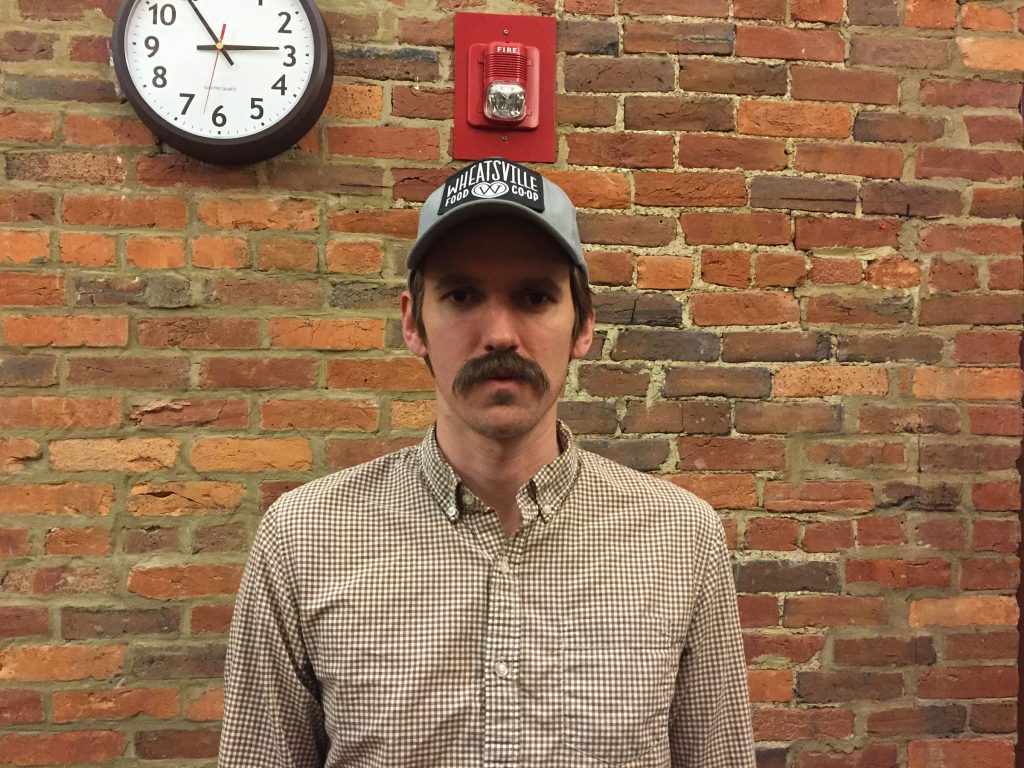
by Jesse Bertron
My neighbor’s kid’s been casting on their lawn since six AM,
with the big pole that’s meant for ocean fishing.
They’re going to fish for mackerel next week.
Mackerel, or sea bass. Sea bass are caught by bait
that looks like mackerel. Mackerel are caught by bait
that looks like trash: feathers and grocery bags,
oily rainbow colors like the skin of a polluted sea.
I’d like to be like mackerel, satisfied by insubstantial
things. Black beetles with an iridescent rim.
White moths up against a scrim of shadow. My neighbor’s kid,
on their front lawn, fishing for nothing. The pole held high
above his head, as if he is fishing for lightning.
—
Jesse Bertron is an apprentice plumber living in Austin. He has an MFA from Vanderbilt University and serves as co-director of Poetry at Round Top. His poetry has appeared in Rattle, Ruminate, and The Massachussetts Review.
you only die once the billboard for cremation
services promises, but the Buddhists
I am driving around are busy talking
so I can’t invite debate
the turmoil is invisible, the famous
cartoonist said about her process—
mine is to throw the dog a ball
then put on lush vibe and get down to it
the universal consciousness in me
bows to the same in you my chiro says
when I go in with a stiff neck and sinus
drainage and my pain quiets down
the last message is simple: blankets everywhere
in the grass and over bushes, against a late
hard freeze—what if in broad daylight we tucked
each other in like this?
—
Robin Bradford is a Dobie Paisano Fellow and O. Henry Award winner. Her poems have appeared in Texas Observer, Friends Journal, Mudfish Review, and Texas Poetry Calendar. Her 2016 poetry chapbook is titled Confidence.
Tips For Writing Your Own Poem
by Clayton Maxwell
We asked Texas poets to share advice for writing poetry, which can be therapeutic in challenging times.
Jesse Bertron: “Even if you don’t write poems, exactly, this is the perfect time to let some of the freshness and richness and riskiness of poetry sneak into your texts and emails. If you’re sending a lot of emails now, consider this permission to let the language in those emails get a little wild. Here’s my father, in an email he sent me this week, describing a childhood encounter with a pro baseball player: ‘I’m not sure if he owed someone a favor or what, but he once came to a summer day camp I attended, and hit a few fungos–in my memory, those balls have never come down from the vast blue sky.’ That’s poetry, y’all!
“If you’re feeling cooped up and crazy, know that actually most poems that have ever been written are about that exact feeling. There are a lot of poems of courage and hope out there—find and read them!—but there are also a lot of poems about feeling isolated and stir-crazy. Those poems are worth reading now too! Some of my favorite poems about being stuck in a house come from the poet Jane Kenyon, who spent most of her writing life living in a rural New Hampshire farmhouse.
“Get outside in little ways. Poems come from walks around the block and from staring up at the sky and especially from talking to your neighbors. Ask your neighbors to borrow a couple eggs, or to jumpstart your car. Good things will happen—that’s a promise. Then you can write about them!”
Octavio Quintanilla: “For writers who want to explore writing poetry during these times, purchase a notebook, a nice notebook, and sit with it every day until you feel ready to write something down—a paragraph, a sentence, a word. No rush. Some days, a blank page with a date will be enough.”
Carrie Fountain on How to Write an Ode: On her podcast, This is Just to Say, Carrie Fountain has created a new series, “The Closet Recordings,” in which she reads poems from her improvised quarantine recording studio—her closet. She’s read poems by the likes of William Stafford, Mary Oliver, and Stanley Kunitz—poems “that offer solace and comfort and direction in this time that can feel so disorienting for so many of us.” Her Friday, March 27th podcast, titled Pablo Neruda and the Friday Poetry Lesson, is fun inspiration on how to write an ode.
